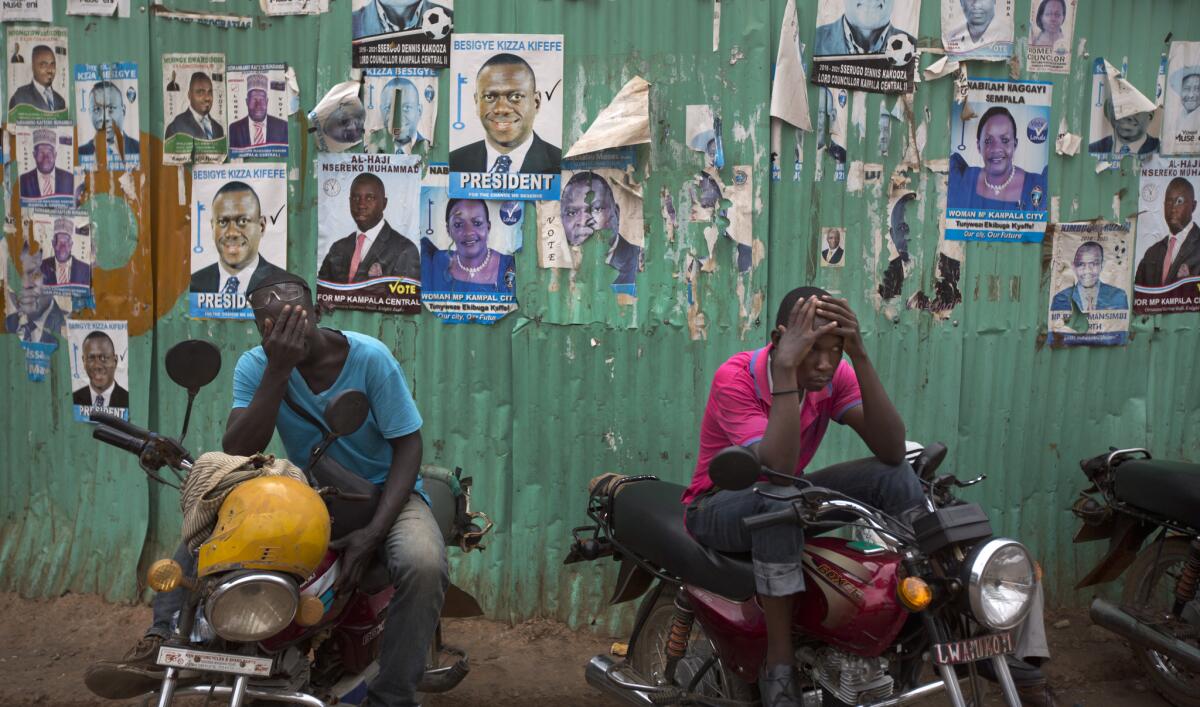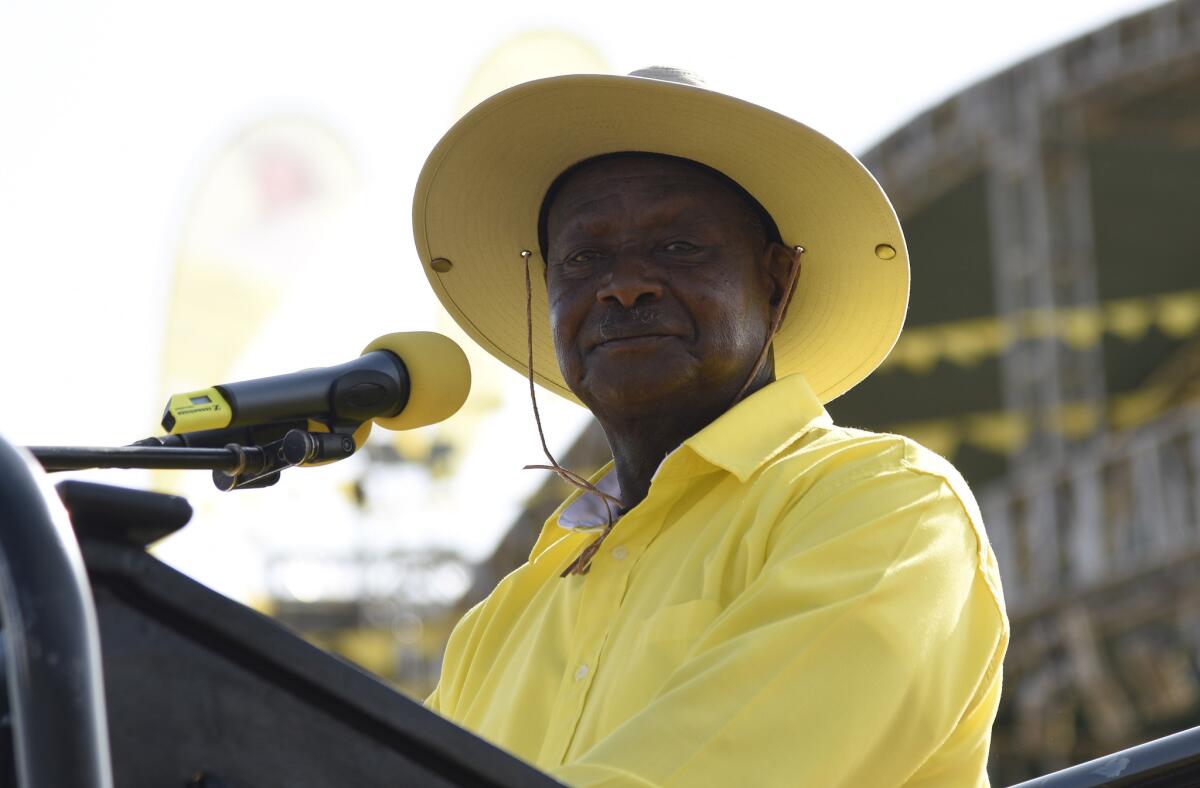Longtime leader Yoweri Museveni declared the winner of Uganda’s disputed election

Dejected opposition supporters who work as motorbike taxi drivers hold their heads in their hands after Uganda’s leader, Yoweri Museveni, was declared the winner of disputed elections.
- Share via
Reporting from KAMPALA, Uganda — Long-time Ugandan leader Yoweri Museveni was declared the winner of the country’s disputed presidential election Saturday, but the main opposition party rejected the results as fraudulent and called for an independent audit of the count.
Museveni got more than 60% of the votes, and his nearest rival, Kizza Besigye, got 35%, according to final results announced by the election commission.
Besigye himself was under house arrest as Museveni was declared the winner, with heavily armed police standing guard near his residence on the outskirts of the capital, Kampala. The capital was calm following the announcement of results amid a heavy security presence.
Museveni’s ruling party, the National Resistance Movement, urged “all candidates to respect the will of the people and the authority of the electoral commission and accept the result. We ask all Ugandans to remain calm and peaceful and not to engage in any public disruptions.”

Uganda’s longtime leader, Yoweri Museveni, addresses supporters in Kampala.
However, Besigye dismissed the results as not genuine and urged the international community to reject the official tally.
“We have just witnessed what must be the most fraudulent electoral process in Uganda,” he said in a statement. “This has not been an electoral process. This is a creeping military coup.”
The voting on Thursday was marred by lengthy delays in the delivery of polling materials, some incidents of violence as well as a government shutdown of social media sites like Twitter and Facebook, which remained inaccessible Saturday.
See more of our top stories on Facebook >>
The election was marked by an “intimidating atmosphere, which was mainly created by state actors,” said the European Union observer mission.
Uganda’s election commission lacks independence and transparency and does not have the trust of all the parties, EU mission leader Eduard Kukan told reporters Saturday. Opposition supporters were harassed by law enforcement officials in more than 20 districts, according to the EU’s preliminary report.
Uganda’s elections “fell short of meeting key democratic benchmarks,” former Nigerian President Olusegun Obasanjo, the head of the Commonwealth observer mission, said, talking about his group’s interim assessment.
Police on Friday surrounded the headquarters of the FDC opposition party as Besigye met with members and a helicopter fired tear gas at a crowd outside. Police then moved in and took away Besigye, a 59-year-old doctor. He was later taken to his house, which was guarded by police who prevented access to journalists.
NEWSLETTER: Get the day’s top headlines from Times Editor Davan Maharaj >>
After Besigye’s arrest on Friday, his supporters took to the streets. Riot police lobbed tear gas and stun grenades at them and fired warning shots from automatic rifles, then chased them through narrow alleys, arresting some.
Besigye’s party is alleging massive vote rigging and accuses the government of deliberately stalling voting in opposition strongholds in Kampala and the neighboring Wakiso district.
U.S. Secretary of State John F. Kerry spoke by phone with Museveni “to underscore that Uganda’s progress depends on adherence to democratic principles in the ongoing election process,” the State Department said. Kerry urged Museveni to rein in the security forces.
The 71-year-old Museveni took power by force in 1986 and pulled Uganda out of years of chaos after a guerrilla war. He is a key U.S. ally on security matters, especially in Somalia. Critics fear he may want to rule for life, and they accuse him of using security forces to intimidate the opposition.
Besigye was Museveni’s personal physician during the bush war and served as deputy interior minister in his first Cabinet. He broke with the president in 1999, saying Museveni was no longer a democrat.
ALSO
U.S. airstrike destroys Islamic State training camp in Libya
Leaders reach deal aimed at keeping Britain from bolting European Union
At 15 cents a gallon, it’s the cheapest gas in the world -- yet Venezuela worries
More to Read
Sign up for Essential California
The most important California stories and recommendations in your inbox every morning.
You may occasionally receive promotional content from the Los Angeles Times.










